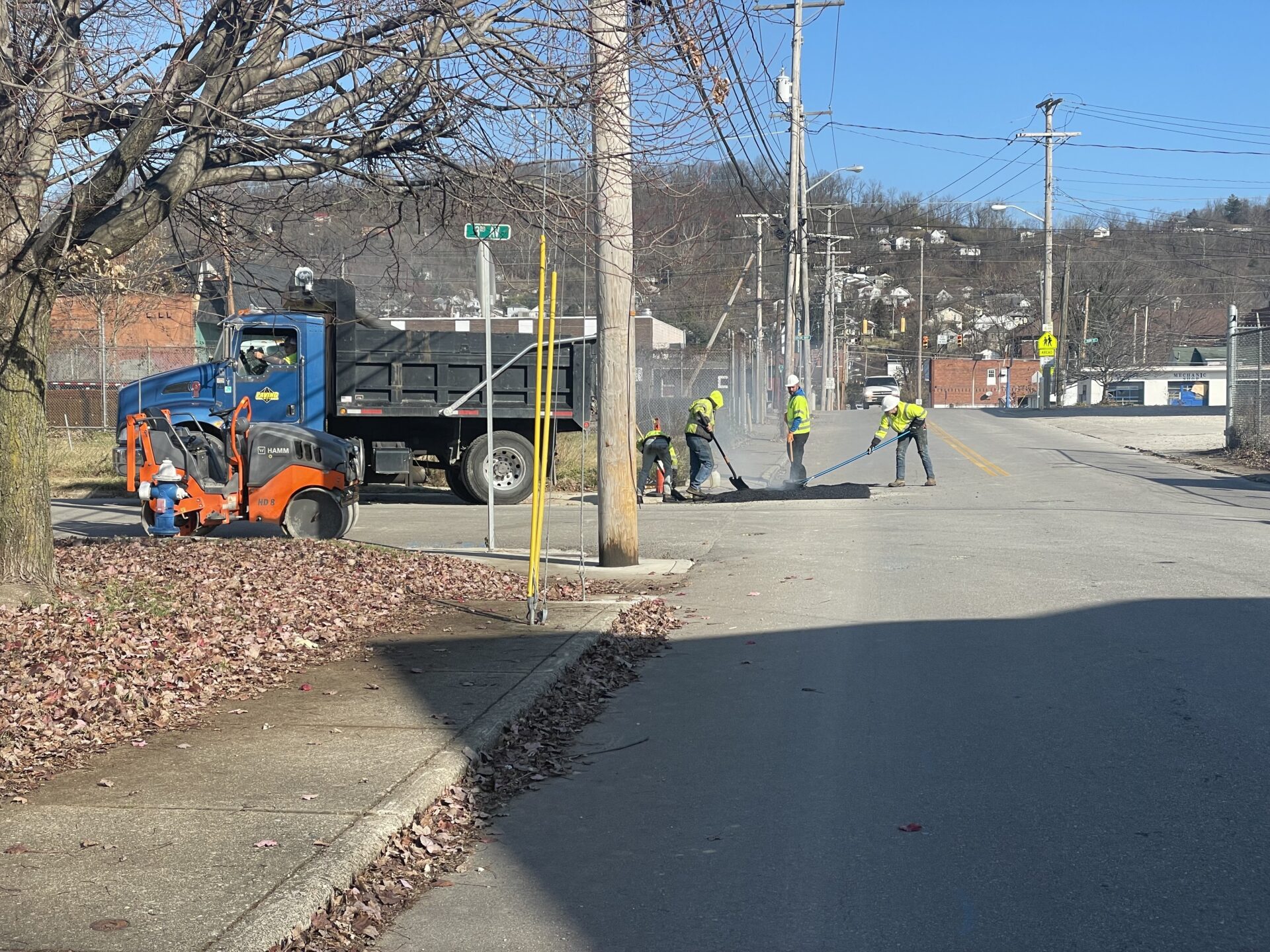Mountaineer Gas said that the 46 miles of gas lines affected have been dried and fully restored. However, many home appliances like water heaters, furnaces and stoves were damaged or destroyed when water entered the gas lines. Many households, like Mahr’s, are still without hot water or heat because of it.
Margaret Mahr sat in her house with an overcoat on and space heaters placed around the room in her home on Charleston’s West Side.
Her fluffy Persian cats were curled up in tight balls. The temperature outside is 28 degrees. She had a pump in her furnace replaced an hour prior, but the floors were still ice cold from the 18 days she spent without heat. She was worried it would break again. It had different parts replaced by contract crews, but she said it hasn’t stayed on for more than 15 minutes before it goes out again.
“You hear on the news, ‘Oh, 1,100 people are all set now, the heat’s on,’ you know,” Mahr said. “It makes me angry when I see that on the news. We are still suffering over here. And it makes me angry and frustrated.”
The gas outage that lasted around two weeks and affected 1,100 Mountain Gas Company customers was caused by a West Virginia American Water line break. The water infiltrated the gas lines.
Mountaineer Gas said that the 46 miles of gas lines affected have been dried and fully restored. However, many home appliances like water heaters, furnaces and stoves were damaged or destroyed when water entered the gas lines. Many households, like Mahr’s, are still without hot water or heat because of it.
The West Side, where the gas outage occurred, is a lower income neighborhood of Charleston with a high percentage of residents who are people of color. Mahr believes that other more affluent areas would have had a different response but because of preconceived notions about her neighborhood that the crisis has not been treated with urgency — leaving her and other residents in the cold.
“Because it’s the West Side, we’re still sitting here. You know what I’m saying?” Mahr said.
Mahr said that two days ago, after 16 days without hot water, the water heater was replaced. She is still waiting for her furnace to function. She said that the company contracted by Mountaineer Gas has replaced different parts of the furnace instead of replacing it entirely, which she says has prolonged her time without heat.
The Public Service Commission opened an investigation on Nov. 16 to look into the widespread gas outage and the utilities’ response to the outage.
“The commission investigation will focus on measures, policies and/or other practices that should be implemented or expanded by both utilities to minimize widespread loss of service for customers, both in geographical scope and in the duration, when water line breaks and gas outages occur,” a case document said.
On Nov. 21, the Charleston City Council wrote a letter to the Public Service Commission asking them to delay or reject a proposed rate increase for both Mountaineer Gas Company’s 4 percent increase and West Virginia American Water’s 22 percent increase.
“While this small action would not make the West Side residents whole, it would at least allow them to avoid another drastic rate increase, as they are still recovering from a severe service interruption that was costly to them,” the council said in the letter.
